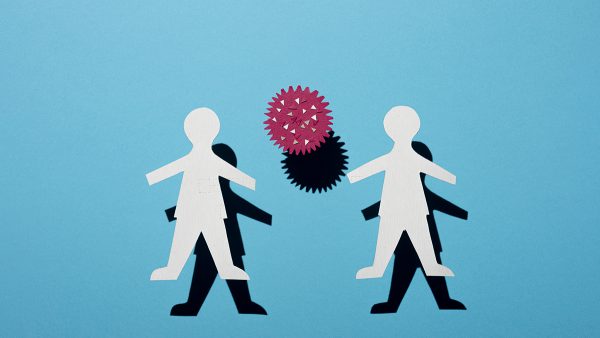SINGAPORE, 13 April 2020: We have got used to having all the answers, and if we didn’t, we quickly learned to spin a tale that suggested otherwise.
But Covid-19 challenges our comfort zone. If we are truthful, every question raised on the pandemic generates the same response; “we don’t know.”

When we look at depleted earnings or another week without a paycheck, we ask “how long?” Nobody knows. The first Covid-19 death was registered in China on 11 January three months ago. Exactly, three months later, New York alone suffered 2,000 fatalities in a single day.
Last week consultants McKinsey and Co, in a survey of consumers in 38 countries, noted that 75% of the people interviewed feared the crisis would continue for more than two months and 50% believed the light at the end of the tunnel was at least four months away. But the reality is we don’t know.
Every day we hear there is a cure in the pipeline. Take your pick it could be a deworming pill used on animals that will sweep you clean of Covid-19 in a remarkable 48 hours. Too good to be true? Or another report suggested some of us might escape the pandemic because we got a TB jab when we were kids. We just don’t know.
If Covid-19 persists like the ebb and flow of the tide seasonally returning to harass and decimate our lives, how will consumer spending stack up? Will recovery pick up enough to kick-start international flights and reopen moth-balled hotels? We don’t know.
Right now, we should be concentrating on what we do know. We have thousands of remarkable and committed heroes fighting the battle to save our lives. They are not soccer players or movie stars, but healthcare workers who put their lives on the line every day. We should cheer them and support them by doing what we do know will make a difference; “stay at home” and work on lifestyle changes that benefit our communities.
Eventually, the travel and hospitality industry will need to rethink the very basics of doing business; a painful path to a more sustainable business model? If Covid-19 remains a threat in June, six months after it claimed its first fatality, how will travel respond and what are the lessons we will need to learn and how will we adapt to new realities?
We are going to have to revisit duty-of-care in travel. At every step of the travel process starting with governments, we need to do better. Did governments fail to deliver duty-of-care for the thousands of travellers stranded for no fault of their own?
Have travel bans been announced and managed with clarity? There is plenty of evidence to show governments failed to give enough notice and sudden closures of travel channels stranded thousands of travellers worldwide.
We assume that Covid-19 will disappear without a trace just like SARS. But if it lingers and our defence remains solely social distancing and frequent washing of hands, how will airlines configure the inflight experience to reflect social distancing? It’s a very practical issue, one that the airlines will have to address until a cure and a vaccine are available.
Will airlines take out the middle seat, place crosses on airport lounge sofas to ensure appropriate distancing? How will inflight food be served? Will airlines need to revisit the entire inflight service process to protect the crew and passengers? The crisis highlighted the refund trap that faces travellers. Legally passengers were entitled to a refund, but in most cases, they were told to settle for a credit note. It’s a thorny issue that remains unresolved, although pressure is mounting from travel agency associations that find themselves caught in the middle.
Airports will face similar questions on social distancing, and to some extent, hotels will have to reconfigure restaurants and meeting room layouts. How will travel and hospitality deal with new norms? Right now, we don’t know, but we should be preparing ourselves for all possible scenarios and fast. The economy will need to reboot soon whether Covid-19 is alive or dead. That could usher in an era of essential business travel only, a new layer of requirements such as medical certificates or even the privilege of travel affirmed by your ‘antibody’ status duly stamped in your passport — good to go.







